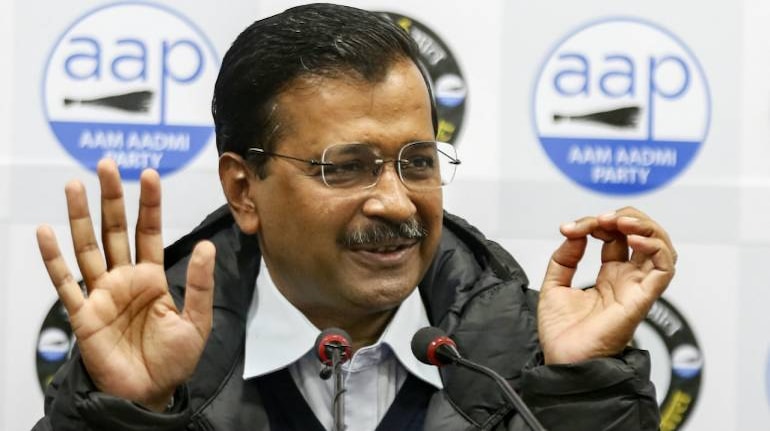



Delhi Chief Minister Arvind Kejriwal’s unsubstantiated and unsourced assertions about a new Singapore strain of COVID-19 could not have come on a worse day for the city-state. The sovereign island’s crown jewel of sorts, the Singapore Airlines (SIA) Group posted a humungous annual loss of $3.2 billion and described the 12 months prior to March 31 as the “toughest year in its history.”
Both these stories were headlined side-by-side all over the South East Asian print media and got top billing in the regional electronic media. The SIA, which has no domestic routes is dependent entirely on international traffic. One of Kejriwal’s demands after declaring that Singapore had spawned a new Coronavirus variant was that the central government ban all flights between Singapore and India.
The SIA’s passenger traffic crashed by 97.9 percent in the last financial year. A temporary air bubble with Hong Kong, pending resumption of scheduled air services, was to partially rescue the carrier when the air bubble went into operation this month end. It has now been postponed. Rumours like the one spread by Kejriwal were certain to push the flagship company further into the red.
Ministries in Singapore had already closed for the day when Kejriwal tweeted mid-afternoon Indian Standard Time on May 18 that he had come to know of a new strain of the virus in Singapore, that it is potentially dangerous for children and could trigger a third wave of COVID-19 infections in India.
Such was the alarm Kejriwal’s tweet caused in Singapore that its relevant ministries resumed work immediately to verify the Delhi Chief Minister’s assertion. Some hours later, they contradicted Kejriwal after making sure that the allegation from the Indian capital was not just false, but irresponsible in the extreme. At 2 am Singapore time on May 19, Indians who needed to know were alerted to the Singapore Health Ministry’s statement that “there is no Singapore variant” of COVID-19. It said the B16172 variant, found in many recent tests in Singapore, originated in India. “Phylogenetic testing has shown this B16172 variant to be associated with several clusters in Singapore.”
How embarrassing for India!
There is inadequate appreciation in the public mind in India that since late night on May 18 Singapore time, all through May 19, nothing seemed to be happening in the city-state other than countering the Delhi-origin perception that a new Singapore strain of COVID-19 could potentially spread overseas.
Everyone in Singapore tasked with the protection and promotion of their country’s global image burnt midnight oil till the wee hours on May 19 because they wanted to kill the Kejriwal story before it broke in the United States and Canada. The US engages Singapore in multiple ways, from aviation to tourism to finance to collaboration in health. Canada has a large community which traces its origin to Singapore, mainly in its western province of British Columbia: this community has frequent and intense interactions with their ‘old country’, as first generation immigrants in Canada refer to the places where they came from.
“The growing pace of mass vaccination exercises in key markets provides hope for further recovery in international air travel demand in the second half of 2021,” the SIA said while announcing its unprecedented loss. Such recovery would be in jeopardy if rumours like the one floated by the Delhi Chief Minister were to go unchallenged. The SIA is only a case in point, but it is a typical example. Singapore’s prosperity depends on engaging the world. Such engagement would be at grave risk if the international community determined that the city-state was a dangerous place to visit for tourism or for business.
In 28 years since then Singapore Prime Minister Goh Chok Tong spoke in a national day speech of starting a “mild India fever” in his city-state, nothing has soured ties between the sovereign island and New Delhi. Till this week, if there was ever a model bilateral relationship in the annals of diplomacy, it was the one between Singapore and India. Even the arrest of Singapore businessman Rajan Pillai and his subsequent death in New Delhi’s Tihar Jail in 1995 — the only irritant in the relationship in almost three decades — was overcome with imaginative diplomacy.
Singapore's High Commissioner to India, Simon Wong, is doing his best to make the new controversy die down and move on. “We should put an end to this episode because the authorities representing the Government of India have spoken and we are heartened by those clarifications and assurances. We feel we should move on with the task ahead,” Wong told Singapore media representatives based in New Delhi.
An important consequence of the Kejriwal episode may be domestic, not external.
One of the innovative initiatives in external affairs when Narendra Modi became Prime Minister was to involve states in foreign policy. He instructed the Foreign Secretary to set up a ‘States Division’ in the Ministry of External Affairs (MEA) so that Thiruvananthapuram or Bhubaneswar could improve their international outreach in a globalised world. At one of the annual meetings of Indian envoys from all over the world, Modi asked each Ambassador to adopt two states for their diplomatic focus.
It is an initiative which has been functioning creditably, especially after an officer who thinks out of the box — not common in the civil service — was put in charge of this division eight months ago. He has, for example, started structurally training state officials in international engagement, something that was not done in last seven decades. The MEA, once bitten by the Delhi Chief Minister, may be twice shy about further involving states in external affairs.
Discover the latest Business News, Sensex, and Nifty updates. Obtain Personal Finance insights, tax queries, and expert opinions on Moneycontrol or download the Moneycontrol App to stay updated!